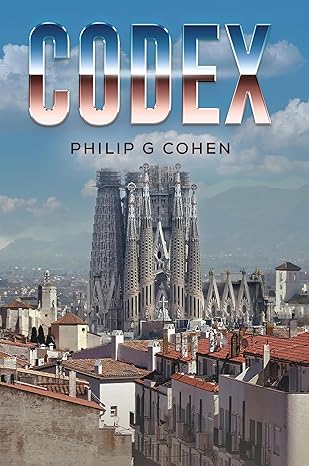How Codex Redefines the Modern Literary Thriller
The modern thriller has grown tired. Too often, the genre relies on recycled tropes: the interchangeable detective with a fractured past, the predictable cat-and-mouse game with a shadowy villain, and the obligatory twist that shocks but rarely makes a lasting impact.
What once kept readers awake at night now feels mechanical, as if suspense itself has been flattened into a formula. Somewhere along the way, the thriller lost its sense of wonder, the ability to unsettle not only through plot but through the weight of ideas, history, and culture.
This is why Philip G. Cohen’s Codex comes as a shock to the system.
It is not content with being a page-turner. It insists on being something larger: a literary excavation that bridges ancient lore and contemporary dread. Its architecture is vast, reaching from the volcanic cones of Catalonia to the shadowy archives of lost libraries, from the vessel of political corruption to the whispered myths of saints and killers.
Cohen understands that thrill is not only about chase scenes or clever reveals, it is about meaning, about the tension between what we know and what we fear has been forgotten.
Philip G. Cohen’s Codex introduces us to Xavier de Torrent de Tête, a librarian whose brilliance with dead languages once exposed a serial killer.
Now older, more fragile, Xavier is caught between the dusty preservation of the past and the sharp edge of a future that wants him silenced. The Three Scrolls he encounters are not just relics; they are living emblems of suppressed truths, artifacts that demand to be read, even if reading them costs blood.
Through Xavier, Cohen binds the intellectual to the visceral; every deciphered line feels like a step closer to revelation, but also to the abyss.
What makes Codex compelling is the way it dares to tether the thriller’s pulse to deeper cultural veins. A serial killer is terrifying, but more terrifying still is a society that turns him into a celebrity, that feeds off his mythology. A corrupt developer desecrates volcanic landscapes not simply for greed, but as a metaphor for the erasure of heritage itself.
Cohen’s narrative moves with the propulsive rhythm of a thriller, yet every page hums with intellectual tension. Ancient festivals collide with modern politics, the rituals of Catalonia breathing against the machinery of globalization. Mummies, scrolls, and libraries sit beside Ferraris, bribes, and media circuses. It is this fusion, archaic mystery with contemporary corruption, that gives Codex its unsettling power.
The novel insists that stories themselves are weapons, that whoever controls the narrative controls the future.
Among thrillers that often feel hollow, Codex reminds us of what the genre can be when it reclaims its ambition. It thrills, yes—but not cheaply. Its suspense grows out of ideas as much as action, out of the recognition that the unfinished business of the past always haunts our present.
Read Philip G. Cohen’s Codex now, on Amazon.













